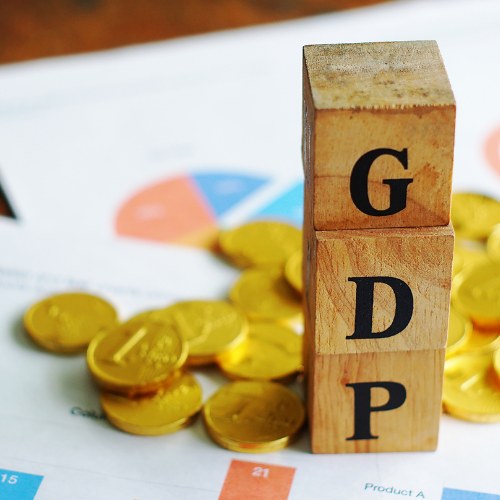Introduction:
In a world increasingly characterized by rapid technological change, globalization, and shifting demographics, government economic policies play a pivotal role in shaping the trajectory of nations. These policies are not merely a set of regulations and financial strategies; they are the frameworks through which governments can foster economic growth, reduce inequality, and improve citizens’ quality of life. This article delves into the intricacies of government economic policies, emphasizing the importance of human capital and societal innovation in driving economic success, with a focus on inspiring examples from countries like Israel.
Understanding Government Economic Policies.
Government economic policies encompass a wide range of strategies and regulations that influence a nation’s economic activities. These policies can be broadly categorized into several key areas:
- Monetary Policy: This involves the management of interest rates and the total supply of money in circulation. Central banks, such as the Federal Reserve in the United States or the Bank of Israel, govern these policies to control inflation, stabilize the currency, and promote economic growth.
- Fiscal Policy: This refers to government spending and taxation decisions. Effective fiscal policies can stimulate economic growth by investing in infrastructure, education, and healthcare, thereby enhancing the productive capacity of the economy.
- Trade Policy: Regulations that govern international trade impact a nation’s economy significantly. Policies that encourage exports and limit imports can stimulate local industries and create jobs.
- Regulatory Policy: This includes the rules that govern businesses, labor, and environmental standards. A balanced regulatory environment can encourage innovation while protecting public interests.
- Social Policy: These policies aim to improve citizens’ welfare through education, healthcare, and social safety nets. A healthy and educated workforce is crucial for sustained economic growth.

The Role of Human Capital in Economic Growth.
While financial capital is essential for business operations, the true engine of economic growth lies in human capital – the skills, knowledge, and experience possessed by individuals. Countries that invest in their people tend to experience higher levels of innovation, productivity, and economic resilience.
Example: Israel.
Israel serves as a compelling case study in the relationship between government policy, human capital, and economic growth. Despite its small geographic size and limited natural resources, Israel has emerged as a global leader in technology and innovation. The nation’s focus on education and technological advancement has transformed its economy, making it one of the most vibrant in the world.
- Education and Research: Israel invests heavily in education, particularly in science and technology. The country boasts a highly educated population, with a significant percentage holding advanced degrees in STEM fields. This focus on education is supported by government policies that promote research and development.
- Innovation Ecosystem: Through policies that encourage entrepreneurship and provide funding for startups, the Israeli government has created a robust innovation ecosystem. Initiatives such as the Office of the Chief Scientist fund research and development projects, fostering collaboration between academia and industry.
- Military Technology to Civilian Use: Israel’s mandatory military service has also played a role in its economic development. The Israel Defense Forces (IDF) is known for its cutting edge technology and innovation, which often transitions into the civilian sector, thereby driving economic growth.
- Venture Capital: The Israeli government has actively promoted venture capital investments, allowing startups to flourish. The presence of a strong venture capital market has fueled the growth of high tech industries, making Israel the “Startup Nation.”
These policies have resulted in impressive economic indicators. As of 2023, Israel’s GDP reached approximately $498 billion, with a GDP per capita of around $54,000, reflecting a high standard of living and economic vitality.
The Interplay of People and Economy.
The notion that “people move economies, not money” underlines the importance of human capital in driving economic growth. Economic systems thrive on the creativity, innovation, and entrepreneurial spirit of their citizens. Governments that recognize and nurture this potential can create environments where individuals can contribute meaningfully to the economy.
Case Studies of Human Centric Economic Policies.
- Singapore: The government of Singapore has prioritized human capital development through high quality education and skills training. This emphasis has transformed the nation into a global financial hub and a leader in various industries, including biotechnology and information technology.
- Finland: Finland’s education system is renowned for its effectiveness. The government’s commitment to equal access to high quality education has resulted in a skilled workforce that drives innovation and productivity.
- South Korea: The South Korean government implemented policies focusing on education and technology, leading to rapid economic growth. The country transitioned from an agrarian economy to a high tech powerhouse, all thanks to the investments made in its people.
Challenges and Opportunities.
While government economic policies can spur growth, they also face significant challenges. These include:
- Globalization: As economies become more interconnected, local industries may struggle to compete with international players. Governments must craft policies that balance protectionism with the need for global engagement.
- Technological Disruption: Rapid technological advancements can lead to job displacement. Governments must invest in retraining and upskilling programs to prepare the workforce for the jobs of the future.
- Inequality: Economic growth can sometimes exacerbate income inequality. Policymakers must implement strategies that ensure the benefits of growth are distributed equitably across society.
Despite these challenges, opportunities abound for governments willing to innovate and adapt. By focusing on human capital, fostering entrepreneurship, and investing in education and technology, nations can position themselves for sustainable economic growth.

Additional Insights on Each Topic:
Here’s a deeper look into each of the topics and why they are relevant for discussions on government and it’s economic growth:
- Government Economic Policies.
- Overview: Economic policies implemented by governments play a crucial role in shaping the overall economic environment. They can stimulate growth through investments in infrastructure, education, and technology.
- Relevance: As economies recover from various crises, understanding the impact of fiscal and monetary policies is essential for predicting future growth trends.
- Economic Recovery Plans.
- Overview: Many governments have devised recovery plans aimed at revitalizing economies post pandemic. These plans often include direct financial support to businesses and individuals.
- Relevance: The effectiveness of these plans can significantly influence job creation, consumer confidence, and overall economic stability.
- Sustainable Economic Development.
- Overview: With increasing awareness of environmental issues, governments are focusing on sustainable economic practices that balance growth with ecological preservation.
- Relevance: Investments in renewable energy and green technology not only address climate change but also create new job opportunities and stimulate economic sectors.
- Trade Policies and Economic Growth.
- Overview: Trade policies directly affect a country’s economic performance by influencing export and import levels, which in turn impact domestic industries.
- Relevance: As nations navigate trade agreements and tensions, understanding how these dynamics affect economic growth is vital for businesses and policymakers alike.
- Economic Inequality and Government Intervention.
- Overview: Economic inequality remains a pressing issue, leading governments to implement programs aimed at redistribution of wealth and opportunities.
- Relevance: Addressing inequality is crucial for sustainable economic growth as it ensures a broader base of participation in the economy, leading to increased demand and innovation.
Conclusion.
These topics not only highlight significant areas of government focus in relation to economic growth but also present opportunities for research, policy making, and public discourse. Keeping abreast of these trends can be beneficial for individuals looking to understand the economic landscape and the role of government in shaping it.
 SUBSCRIBE TO SKILLED DIPLOMAT: https://youtube.com/@SkilledDiplomat/…
SUBSCRIBE TO SKILLED DIPLOMAT: https://youtube.com/@SkilledDiplomat/…Hacking Growth: How Today’s Fastest-Growing Companies Drive Breakout Success.
The secret to China’s economic growth? It’s not what you think.
Frequently Asked Questions (FAQs) :
Q: What is the role of fiscal policy in economic growth?A: Fiscal policy involves government spending and taxation decisions. By increasing spending during economic downturns, governments can stimulate demand, create jobs, and promote economic growth. Conversely, reducing spending or increasing taxes during periods of growth can help control inflation.
Q: How do stimulus packages impact the economy?A: Stimulus packages provide direct financial support to individuals and businesses, which can boost consumer spending and investment. This increased demand can lead to job creation and economic recovery, particularly during recessions or crises, by injecting liquidity into the economy.
Q: What are the benefits of sustainable economic development?A: Sustainable economic development focuses on long-term growth while preserving environmental health. Benefits include reduced reliance on non renewable resources, the creation of green jobs, and improved public health outcomes. This approach can lead to resilient economies that are better prepared for future challenges.
Q: How do trade policies affect domestic industries?A: Trade policies, such as tariffs and trade agreements, can significantly impact domestic industries by altering competitive dynamics. For example, tariffs on imported goods may protect local industries from foreign competition, while free trade agreements can open new markets for exports, benefiting certain sectors.
Q: Why is addressing economic inequality important for economic growth?A: High levels of economic inequality can hinder overall economic growth by limiting access to opportunities and resources for large segments of the population. When more individuals can participate in the economy, it leads to increased demand for goods and services, fostering innovation and overall economic expansion.
